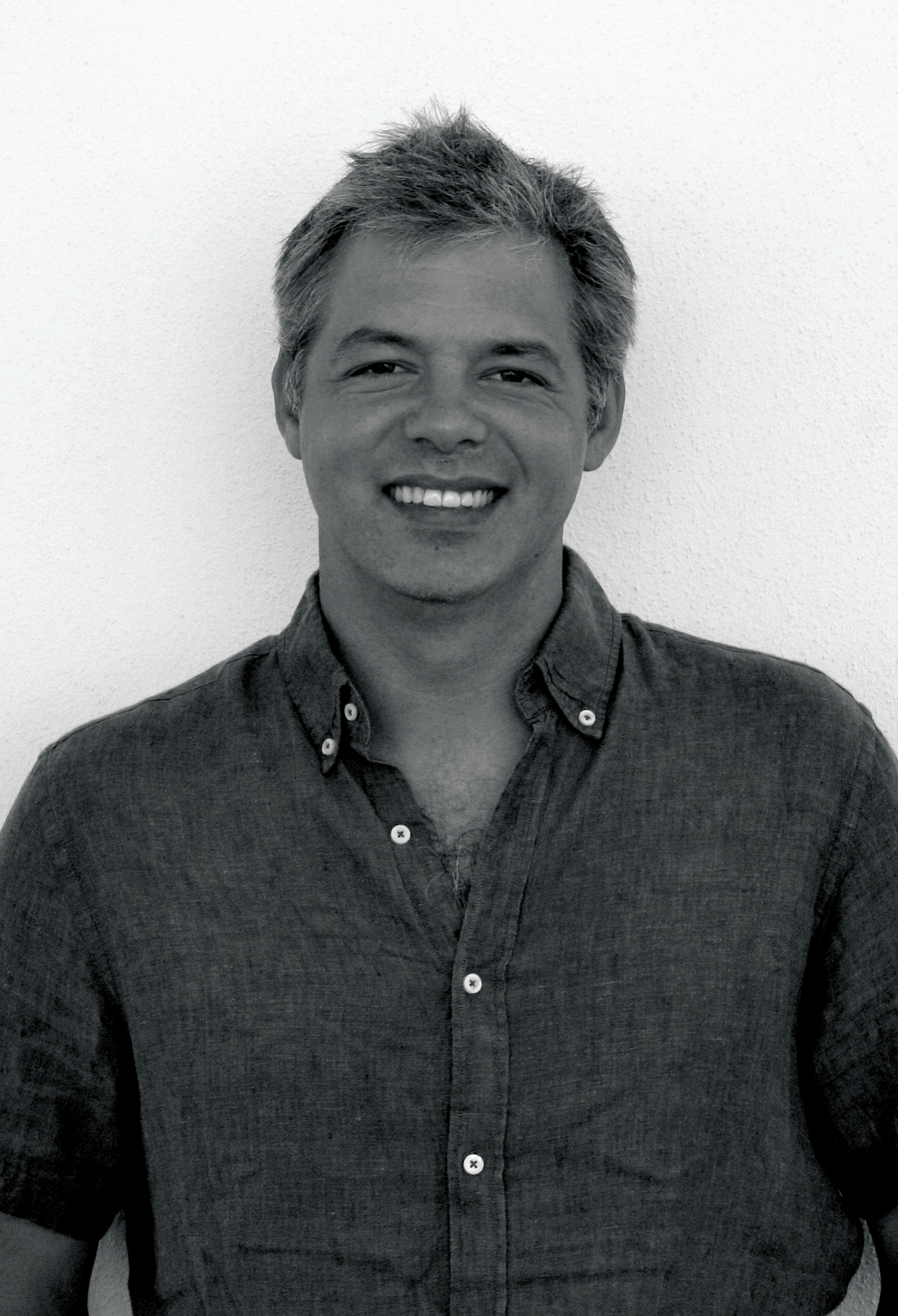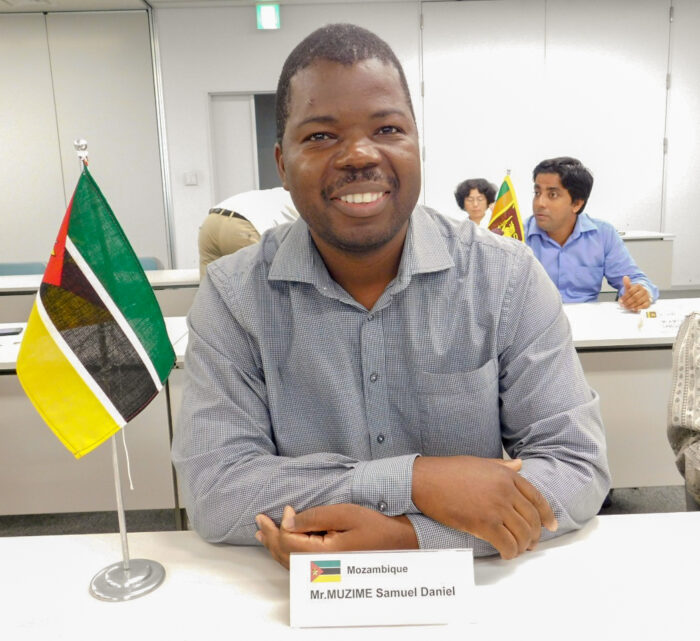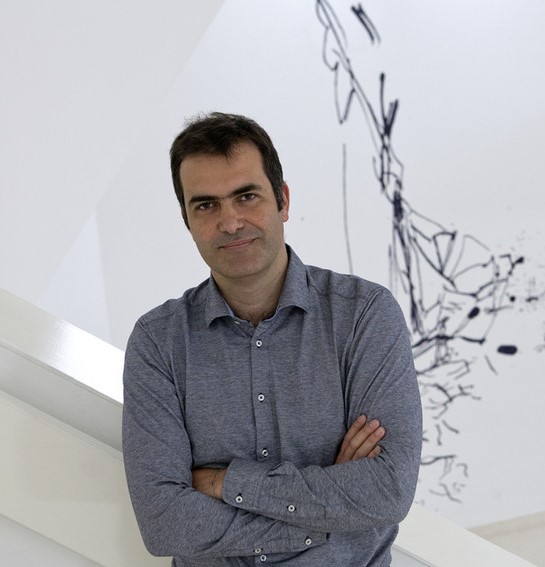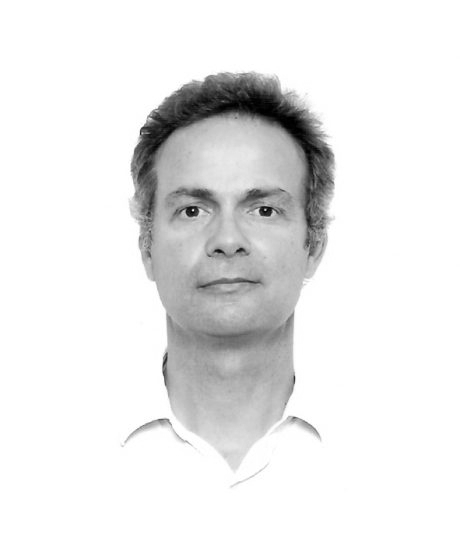A conversation with Arch. Afonso Almeida Fernandes

A conversation with Arch. Afonso Almeida Fernandes
‘CAuSA intends to be an association of architects and engineers, who want to help, but it lacks time and initiatives’
Tell us about your journey.
I left college in 2014 and spent two years at Aires Mateus e Associados studio.
Manuel Aires Mateus was my teacher. At the end of the course, I had an order for a house and decided to take a risk and open a studio. I joined architect Mafalda Neto Rebelo, who was my partner for ten years, at CHP. When we started having more interesting projects, the crisis arrived. We were lucky enough to go to Angola with a single project, but with a colossal dimension. There were five towers that housed some ministries, a shopping center, offices and 150 homes, equivalent to the population of Leiria. It occupied us during the four years of the crisis in Portugal. Then we came back. Two years ago, I decided to leave CHP because I always had a strong solidarity component in my life, I did a lot of volunteering, I always wanted to be connected to that and I couldn’t do it without harming my partners. I left, with a heavy heart, but it went well. I founded my studio, Almeida Fernandes Arquitetura, there are four of us, and the work I do is the same as I did.
What can you tell us about your solidarity component?
In October 2017, I made myself available to help with the fire disaster in the north. Together with my children’s school, I went there in the second week, as a volunteer, to support those people. As things started to be defined, I realized that I could also help as an architect. The houses affected by the fire received funds from the State, but we came across others that, despite not being burned, had no living conditions, also needed to be recovered, there were entire families without electricity and water. It was at that time that I decided to create an association, which will soon be an NGO, called “CAuSA – Unidos por uma casa” [eng: united by a house], which aims to take architecture to those who don’t have it. In the summer, I worked with an association to rehabilitate 30 of those houses, it’s called “Just a change” and gathers volunteers in a summer camp, gets money and hires local contractors who coordinate groups of volunteers to rebuild houses. My role was to identify the houses, together with the municipalities of Santa Comba Dão, Tondela and Arganil, and make the architectural projects, measurements and budgets. In Tondela we were asked to recover some agricultural warehouses because 90% of the affected people were subsistence farmers, people who were not without housing but were without their way to subsist. Whoever lost the house, had a new one, and the farmers, that lost implements, tractors, sheds, gardens and animals, received five thousand euros. In these cases, what CAuSA did was to build agricultural multifunctional sheds, inspired by the traditional construction of the northern granaries model, reusing the burnt wood, which was recovered in the local sawmills. The shed costs 3500 euros, about half the market price, is made with local labor, restores hope and dignity and prevents the proliferation of sheet metal construction.
And what follows?
The next idea is to implement this project on a larger scale that involves the social kitchens of the villages. In Arganil it was Santa Casa da Misericórdia that surveyed the cases because they are very close to the population, they have a home support team that takes meals to people in their homes. What we wanted was to connect farmers with these kitchens, which buy vegetables in supermarkets. With the purchase of the shed or part of it, even if it is symbolic, the farmer would be linked to a cooperative, being able to produce vegetables to sell to these social kitchens. The association’s ambition, which is at the very beginning, is to become an association of architecture and engineering companies, because architects and engineers do not have a social responsibility aspect but they have a great desire, but they lack time and initiatives. Partnering with CAuSA allows them to be supportive and help with what they do best. The idea is to establish a company share that feeds a small team, that works for this purpose to take architecture to those who don’t have it.
Regarding the studio, what have you been doing?
We made a small conversion of a terrace, with a shading structure, a kitchen and a living area, on the top floor of a building; a psychology clinic for families, with an area with offices and another type of study center, inspired by scaffolding, with different areas where children can sit and read, a library, kitchen and dining area. With BETAR we made ten houses in Paço d’Arcos on a trapezoidal lot, with a considerable slope. We built six semi-detached and four detached houses, whose gardens are on terraces, uneven from each other, which gives them privacy. At Comporta, a house will now begin to be built, inspired by the stilt pier and thatched houses, where the interior and exterior merge. We designed several wooden blocks, interconnected by a glass corridor: the volumes come together in a symbiosis between interior and exterior, where we have the feeling of being outside when inside and vice versa. In the end, architecture for me is also this, spaces that do not have great functionality, are just beautiful and serve to be and be seen.
This interview is an integral part of Revista Artes & Letras # 104, January 2019
Partially automatic translation from portuguese: some expressions may differ from their actual meaning.
News & Interviews
A conversation with Eng. Samuel Muzime
'The main challenges of CFM are: to be a regional reference in cargo transport at a competitive price and with safety, having infrastructures with continuous modernization and well-trained and motivated personnel' Read more
A conversation with Arch. Pedro Campos Costa
'It is important to create synergies to see if we can live here in this rectangle. That’s the message I want to send at the Venice Biennale: there’s a lot to do here inside!’ Read more
A conversation with Arch. José Barra
'Architecture is in a state of schizophrenia. One day it is euphoric for the two Pritzker prizes and the next day depressed because it realizes that has to emigrate to survive. ’ Read more




